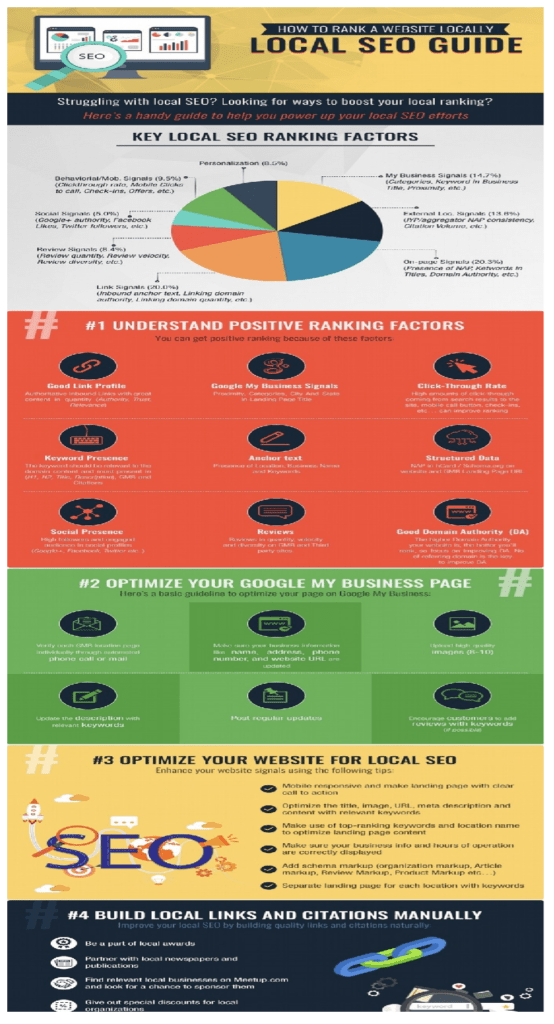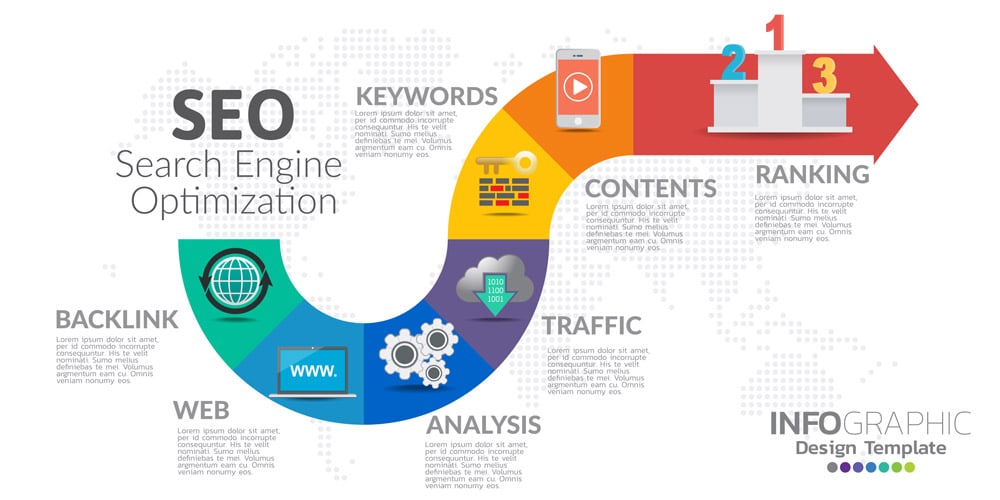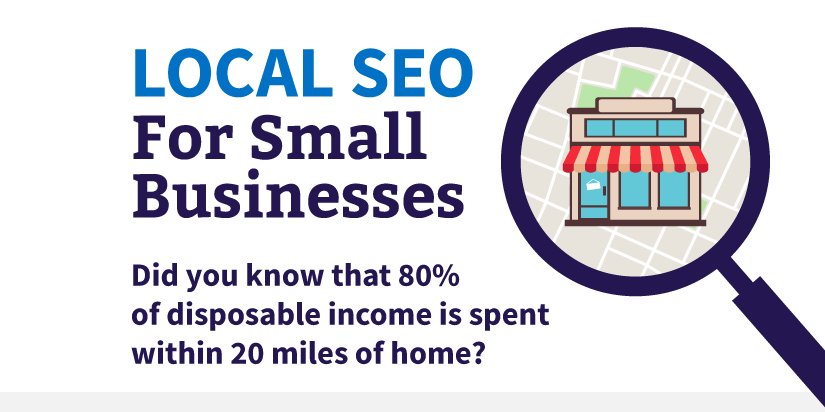Uncover the secret to dominating local search results and boosting your business with the power of local SEO strategies.

Image courtesy of via DALL-E 3
Table of Contents
Introduction to Local SEO
Welcome to the world of Local SEO! Have you ever wondered how small businesses show up when you search for something on the internet? Well, that’s where Local SEO comes into play. In this section, we will dive into what Local SEO is and why it’s crucial for local businesses to get noticed by people in their area.
What is Local SEO?
Let’s break it down – Local SEO stands for Local Search Engine Optimization. Basically, it’s a way for businesses to improve their online visibility so that when people in their local area search for products or services, they are more likely to find them. It’s like putting up a big sign that says, “Hey, we’re here, come check us out!”
Why is Local SEO Important?
Imagine you have a favorite pizza place nearby, but when you search for it online, you can’t find it anywhere. That’s where Local SEO comes in handy. Businesses need Local SEO to make sure they show up when people in their area are looking for what they offer. It’s like making sure your lemonade stand is easy to find in a busy neighborhood – you want to stand out from the crowd!
How Search Engines Work
Search engines are like giant libraries on the internet where you can find information about almost anything you can think of. Some popular search engines you may have heard of are Google and Bing. These search engines help people find what they are looking for online.
How Do Search Engines Find Information?
Search engines work like magic detectives that roam around the internet collecting clues to solve a mystery. When you type something into a search engine, like “best burger near me,” it goes on a hunt to find websites that match what you’re looking for. It looks at words on websites, images, links, and many other things to figure out which websites are the best match for your search.
The Role of Keywords in Local SEO
In the world of Local SEO, keywords play a crucial role in helping people find local businesses online. But what exactly are keywords and why are they so important for businesses looking to attract local customers?

Image courtesy of growyourevenue.com via Google Images
What are Keywords?
Keywords are specific words or phrases that people type into search engines when looking for information, products, or services. For example, if someone is searching for a local pizza restaurant in their area, they might type in keywords like “best pizza near me” or “pizza delivery in [City Name].” These keywords help search engines like Google and Bing understand what the user is looking for and match them with relevant results.
Why are Local Keywords Important?
When it comes to Local SEO, using local keywords is essential for businesses that want to show up in search results when people are looking for products or services in their area. By incorporating keywords related to their location, such as city names or neighborhood names, businesses can increase their visibility to potential customers who are nearby.
Optimizing Your Website for Local SEO
When it comes to getting your small business noticed online, optimizing your website for local SEO is crucial. By incorporating specific strategies, you can improve your visibility in local searches and attract more customers in your area.
Adding Location Information
One of the first steps in optimizing your website for local SEO is to include important location information. Make sure to prominently display your business address, phone number, and hours of operation on your website. This makes it easier for potential customers to find and contact you.
Using Local Keywords
Another important aspect of website optimization for local SEO is using local keywords throughout your content. Incorporate terms that people in your area are likely to search for when looking for businesses like yours. This helps search engines connect your website with local searches and improve your visibility.
Importance of Google My Business
Google My Business (GMB) is a powerful tool that helps local businesses attract customers in their area. It is essential for businesses to have a strong presence on this platform to increase visibility and connect with potential customers.

Image courtesy of www.emediacy.net via Google Images
What is Google My Business?
Google My Business is a free tool provided by Google that allows businesses to create and manage their online presence across Google, including Search and Maps. It enables businesses to display important information, such as their address, phone number, website, and hours of operation, making it easier for customers to find them.
Setting Up Google My Business
To set up Google My Business, businesses need to create an account and verify their listing. Once verified, they can then provide detailed information about their business, including photos, business categories, and customer reviews. Optimizing a GMB listing with relevant keywords and accurate information is crucial for improving search visibility.
Online Reviews and Reputation
Online reviews and reputation are essential for businesses to attract customers and build trust within their local community. Let’s explore how customer feedback can impact a business’s online presence and how to effectively manage your reputation.
Getting Good Reviews
Encouraging customers to leave positive reviews is crucial for boosting your business’s credibility and visibility online. One way to do this is by providing exceptional products or services that exceed customer expectations. Happy customers are more likely to share their positive experiences with others. You can also politely ask satisfied customers to leave a review on platforms like Google, Yelp, or Facebook. Offering incentives, such as discounts or freebies for leaving a review, can also motivate customers to share their feedback.
Responding to Reviews
Responding to reviews, both positive and negative, is crucial for showing your commitment to excellent customer service. When you receive a positive review, take the time to thank the customer for their kind words and express your gratitude. This not only shows appreciation for their feedback but also demonstrates to potential customers that you value customer satisfaction. On the other hand, when faced with a negative review, respond calmly and professionally. Acknowledge the customer’s concerns, apologize for any shortcomings, and offer a solution to rectify the situation. Handling negative reviews gracefully can help turn a dissatisfied customer into a loyal advocate for your business.
Social Media and Local SEO
Social media platforms like Facebook, Instagram, and Twitter can be powerful tools for local businesses to connect with their community. When choosing which platforms to use, it’s essential to consider where your target audience spends their time online. For example, if your business caters to a younger demographic, platforms like Instagram or TikTok might be more effective. On the other hand, if your target customers are professionals, LinkedIn could be a better choice.

Image courtesy of www.linkedin.com via Google Images
Engaging with the Community
Engaging with your local community on social media is a great way to build relationships and boost your visibility. You can share updates about your business, promote special offers or events, and showcase your products or services. Encouraging conversations, responding to comments, and actively participating in local groups can help you establish a strong online presence and attract more customers. Remember, authenticity and genuine interactions are key to building trust and loyalty among your followers.
Local SEO Tips and Tricks
One crucial tip for Local SEO success is to ensure NAP consistency. NAP stands for Name, Address, and Phone number. It is essential to keep this information consistent across all your online platforms, including your website, social media profiles, and business directories. Search engines like Google rely on accurate NAP details to verify your business’s legitimacy and relevance to local searches. Inconsistent information can confuse search engines and potential customers, leading to a drop in your local search rankings.
Local Backlinks
Another valuable strategy for boosting your Local SEO is to earn local backlinks. Backlinks are links from other websites that point to your site. When reputable local websites link back to your business site, search engines view it as a vote of confidence in your credibility and authority within your geographic area. Aim to earn backlinks from local directories, community organizations, local news outlets, and other businesses in your area. These local backlinks can significantly impact your local search visibility and help you outrank competitors in your region.
Conclusion
Local SEO plays a crucial role in helping small businesses get discovered by people in their area. By optimizing their online presence with local keywords, location information, and Google My Business listings, businesses can improve their visibility in local searches. Engaging with the community on social media and earning local backlinks further boost their chances of reaching potential customers.

Image courtesy of frontiermarketingllc.com via Google Images
Recap of Local SEO Benefits
In conclusion, Local SEO is essential for local businesses to stand out in crowded online searches. By implementing strategies like using local keywords, maintaining NAP consistency, and gathering positive online reviews, businesses can increase their chances of being found by local customers. Remember, a strong online presence through Local SEO can make all the difference in getting noticed and growing your business.
Want to turn these SEO insights into real results? Seorocket is an all-in-one AI SEO solution that uses the power of AI to analyze your competition and craft high-ranking content.
Seorocket offers a suite of powerful tools, including a Keyword Researcher to find the most profitable keywords, an AI Writer to generate unique and Google-friendly content, and an Automatic Publisher to schedule and publish your content directly to your website. Plus, you’ll get real-time performance tracking so you can see exactly what’s working and make adjustments as needed.
Stop just reading about SEO – take action with Seorocket and skyrocket your search rankings today. Sign up for a free trial and see the difference Seorocket can make for your website!
Frequently Asked Questions (FAQs)
What is the difference between SEO and Local SEO?
SEO stands for Search Engine Optimization, which is the practice of optimizing a website to increase its visibility on search engines like Google and Bing. Local SEO, on the other hand, focuses specifically on improving a local business’s online presence so that it can be easily found by people in its geographic area. While SEO targets a broader audience, Local SEO hones in on attracting local customers.
How long does it take to see results from Local SEO?
The timeframe for seeing results from Local SEO can vary depending on various factors, such as the competitiveness of your industry, the current state of your online presence, and the strategies you implement. In general, businesses may start to see improvements in their local search rankings within a few weeks to a few months after implementing Local SEO tactics. It’s important to remember that SEO is an ongoing process, and consistent effort is key to maintaining and improving your local search visibility over time.







